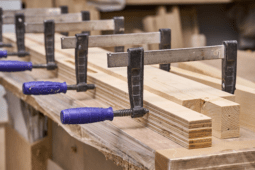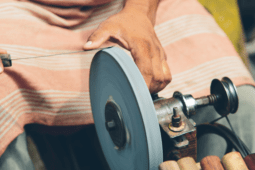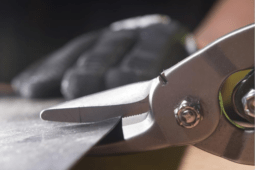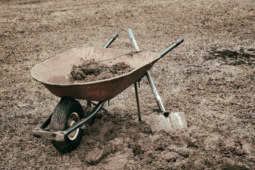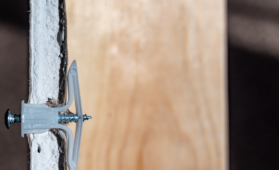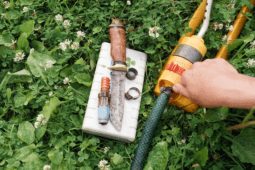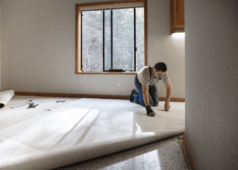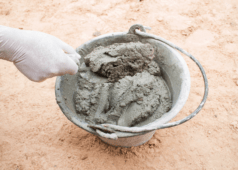The Benefits of Composting: Why You Should Start Today
Composting is the process of breaking down organic materials such as food scraps, yard waste, or general leaves and debris into a nutrient-rich soil amendment. It is an environmentally friendly and cost-effective way to manage organic waste while also improving soil health.
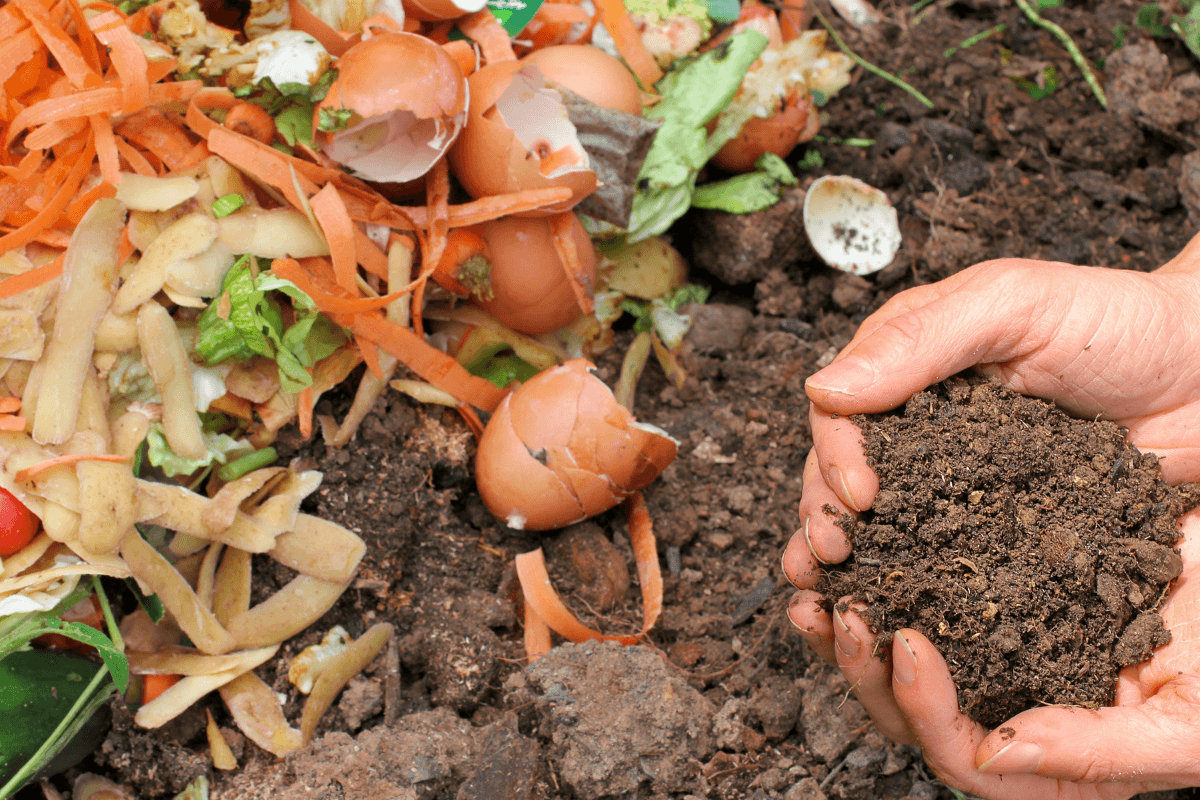
Composting has numerous benefits, including reducing greenhouse gas emissions, diverting waste from landfills, and reducing the need for chemical fertilizers. Additionally, composting can help to conserve water by improving soil structure and reducing runoff.
Composting can be done on a small or large scale, making it accessible to individuals, households, schools, businesses, or municipalities. It is an easy and rewarding way to contribute to a more sustainable future while also improving the health of your garden or landscape. In this article, we will explore the many benefits of composting and provide tips for getting started with your own composting system.
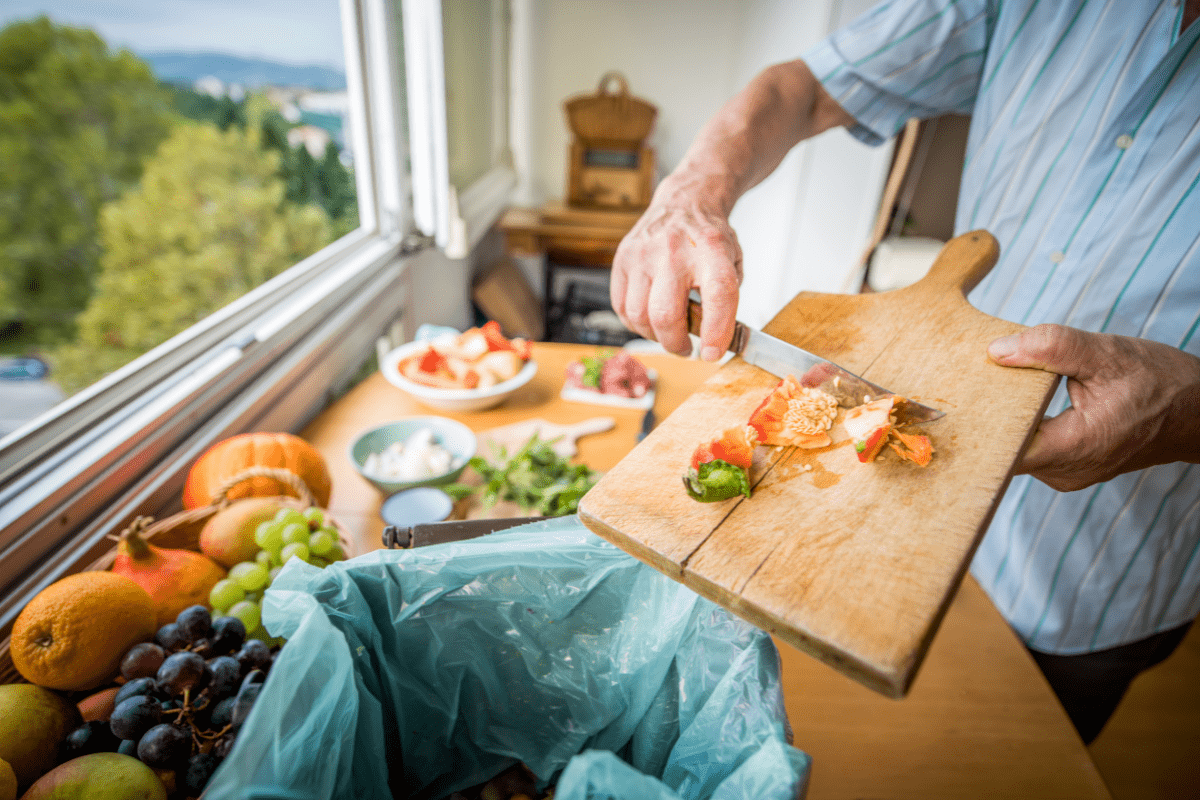
Composting Reduces Waste
First, the most simple and obvious advantage: composting reduces waste. By composting your food scraps, yard waste, and other organic materials, you’re keeping them out of landfills where they take up space and emit harmful gases. According to the US Environmental Protection Agency, organic waste makes up about 30% of the waste stream. By composting, you’re reducing the amount of waste that goes to landfills and helping to reduce greenhouse gas emissions.
Improves Soil Health
Composting also improves soil health. When you add compost to your garden, you’re adding nutrients and beneficial microorganisms to the soil. Compost helps to improve soil structure, water retention, and drainage. It also helps to reduce erosion and compaction. By improving soil health, you’ll have healthier plants that are more resistant to pests and diseases.
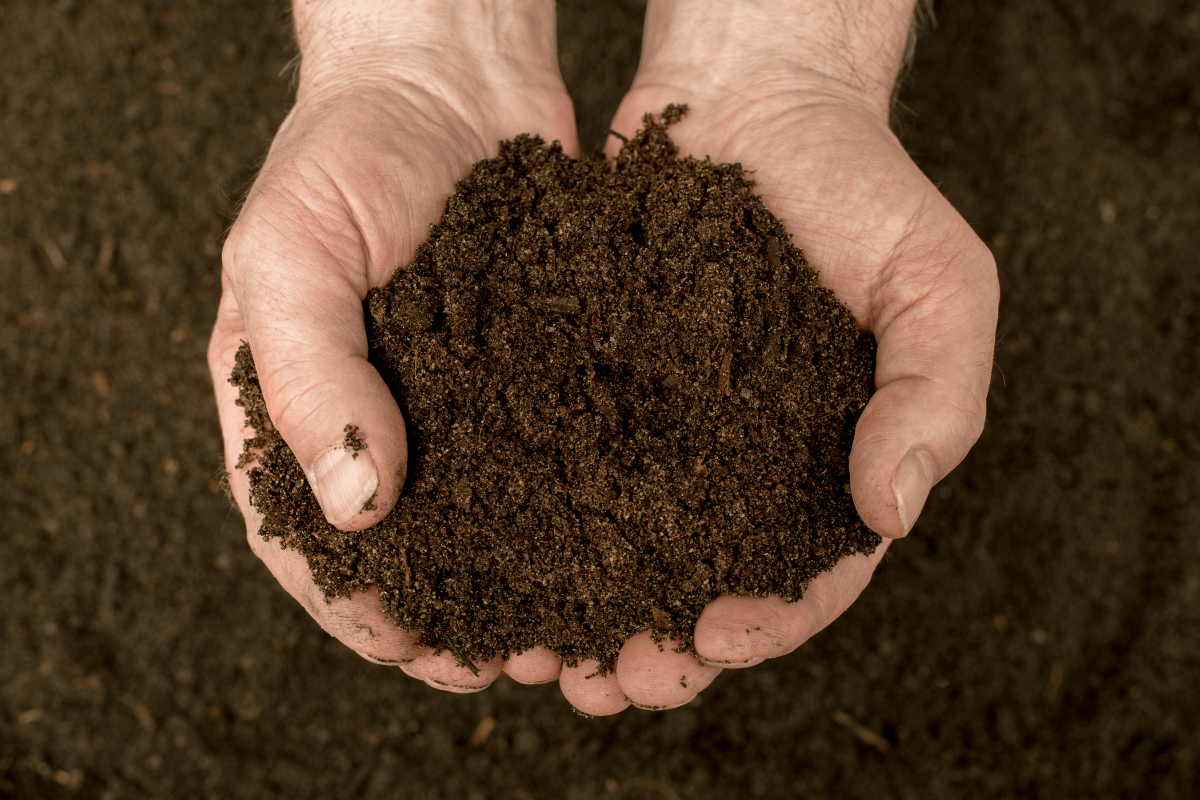
Money Savings
In addition to improving soil health, composting can also save you money. By using compost instead of chemical fertilizers, you’ll be reducing your costs and helping to reduce pollution. Compost is also a great way to reuse organic materials that would otherwise be thrown away.
How To Compost
Composting is relatively easy to start doing if you’re not already. All you need is a compost bin or pile, organic materials, and some patience. Many different types of compost bins are available, from simple homemade bins to more expensive commercial models. You can compost a wide variety of materials, including fruit and vegetable scraps, eggshells, coffee grounds, yard waste, and even some paper products.
If you’re interested in starting a compost, there are a few things to keep in mind.
First, ensure you have enough space for a compost bin or pile. You’ll also want to ensure that your compost is in a location convenient for adding materials and turning the pile. Be honest with yourself; if you have to trek to the back corner of your yard in the middle of a December blizzard to put your eggshells in the compost bin, will you still do it?
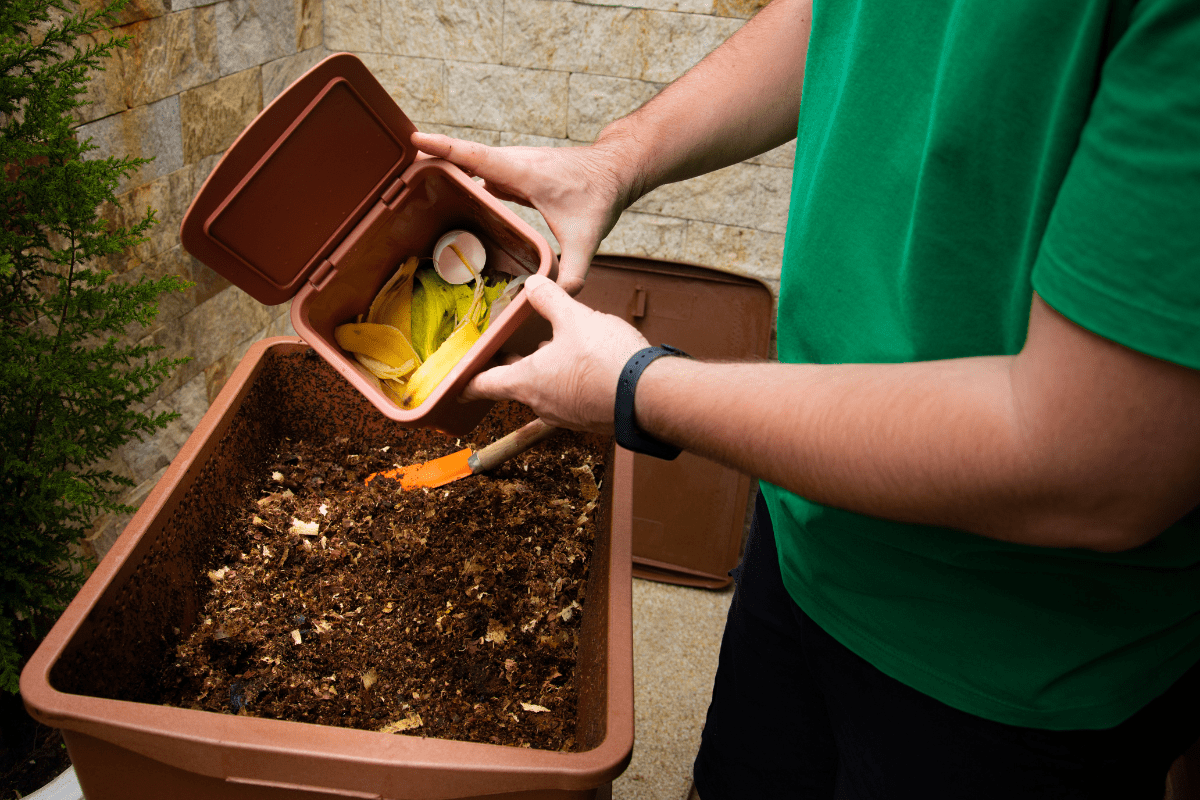
You’ll also want to ensure that your compost is in a location that’s not too hot or too cold, as extreme temperatures can slow down or alter the composting process.
When adding materials to your compost, it’s important to maintain a balance of carbon and nitrogen. Carbon-rich materials include things like dried leaves, straw, and shredded paper. Nitrogen-rich materials include things like fruit and vegetable scraps, grass clippings, and coffee grounds. To maintain a good balance, you’ll want to add about twice as many carbon-rich materials as nitrogen-rich materials.
You’ll also want to turn your compost regularly to help speed up the composting process. Turning your compost helps to mix the materials and introduce oxygen, which is necessary for composting. You can use a pitchfork or a compost turner to turn your compost. The turning process itself is basically like tossing a salad, so you don’t have to worry too much about how to do it, so long as you’re moving around the contents of your bin every few days.
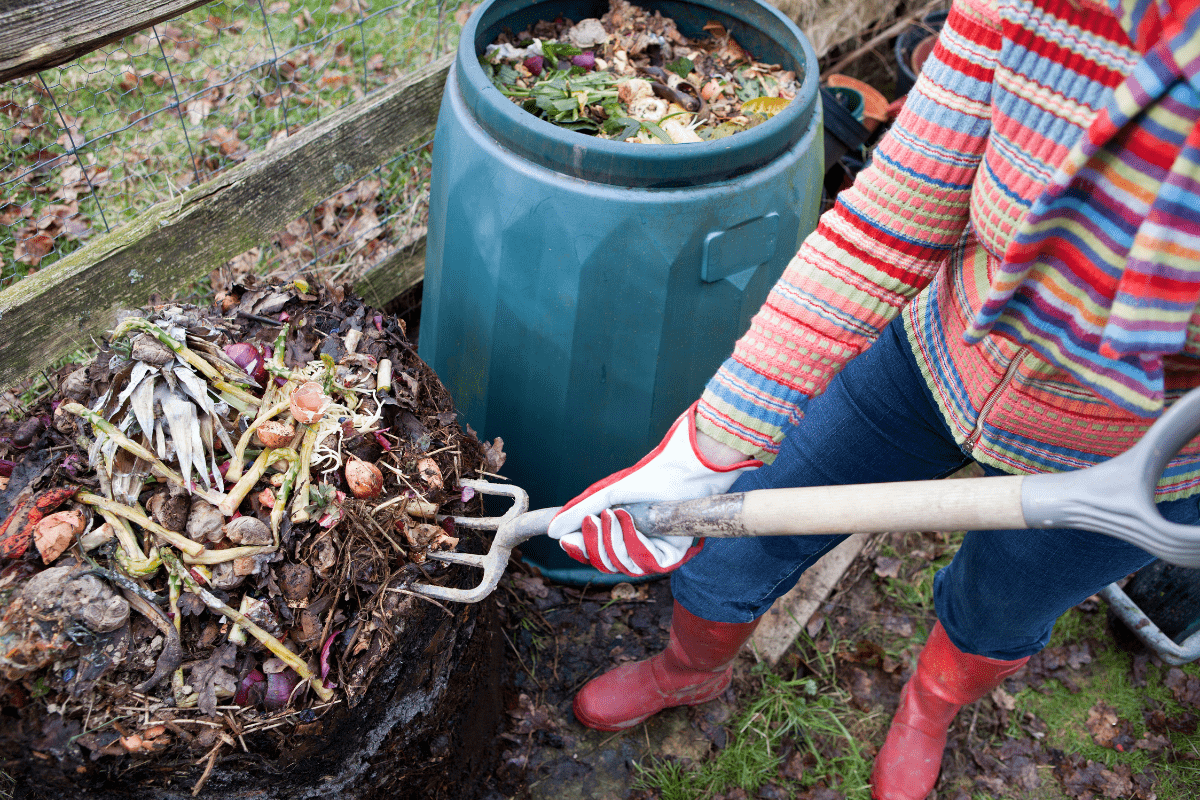
To get you started, here are 20 items that you can compost:
- Fruit and vegetable scraps
- Coffee grounds and filters
- Tea bags
- Eggshells
- Grass clippings
- Leaves
- Yard trimmings
- Wood chips and sawdust
- Shredded newspaper
- Cardboard
- Paper towels and napkins
- Cotton and wool rags
- Dryer and vacuum cleaner lint
- Hair and fur
- Fireplace ashes
- Fish and fish bones
- Seaweed
- Nutshells
- Old spices
- Stale bread and cereal.
Cleaning and Maintenance of Your Composter
Ideally, you should clean your composter at least once a year or more often if it starts to smell. If you notice mold or other signs of contamination, that’s also a clear sign it’s time to clean out the composter—regardless of when you last cleaned it.
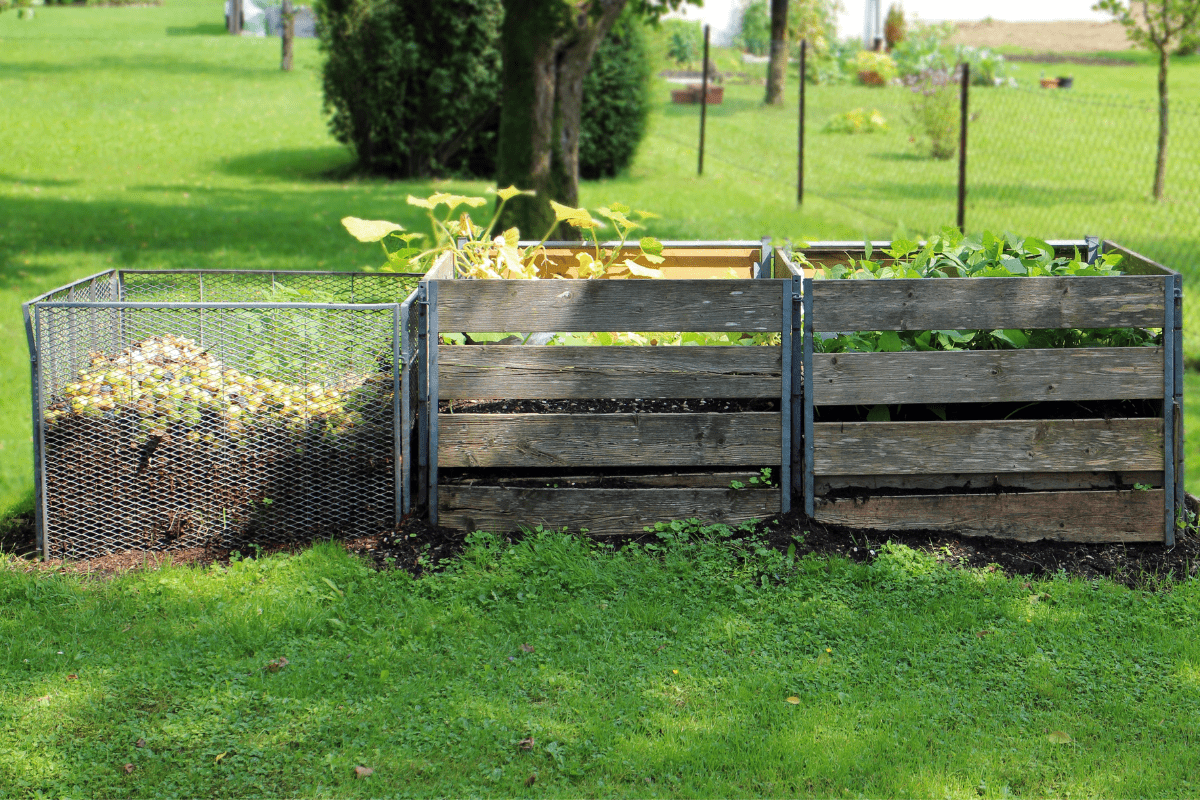
To clean your composter, start by emptying out all of the compost and disposing of any large debris. Then, scrub the inside of the composter with a solution of water and vinegar or mild soap. Rinse thoroughly and let the composter dry completely before adding fresh compost. By following these simple steps, you can keep your composter clean and healthy year after year.
Quick Tips for Composting
Here are 10 quick tips for composting:
- Use a compost bin or pile to contain your composting materials.
- Mix green (nitrogen-rich) and brown (carbon-rich) materials in a ratio of 2:1.
- Keep your compost moist, but not too wet, to help the decomposition process.
- Turn your compost regularly to ensure even decomposition.
- Avoid adding meat, dairy, or other animal products to your compost, as they can attract pests.
- Chop up larger composting materials to speed up decomposition.
- Cover your compost to keep it from getting too wet or too dry.
- Use finished compost to enrich your garden soil and reduce the need for fertilizers.
- Remember to add a variety of materials to your compost, including leaves, grass clippings, and kitchen scraps.
- If you’re short on space, consider vermicomposting (using worms to break down your food scraps).
Composting is a great way to reduce waste, improve soil health, save money, and reuse organic materials. If you’re interested in starting a compost, there are many resources available to help you get started. By composting, you’ll be doing your part to help the environment and create a healthier garden. So why not start a compost today?

